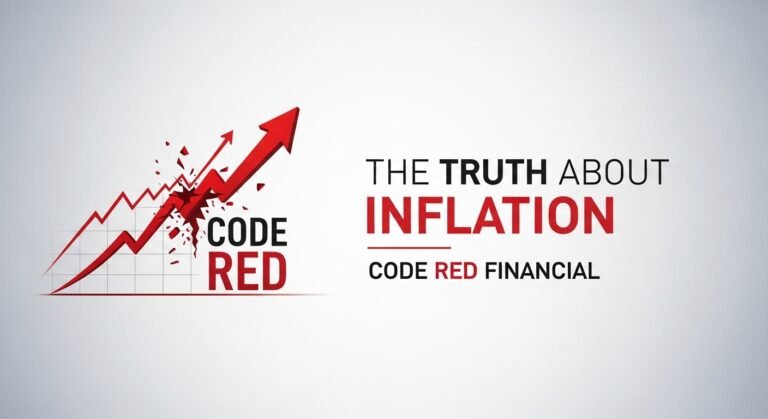
Unlocking Financial Wellness Through Financial Therapy
Understanding Financial Therapy: More Than Just Budgets and Balance Sheets
Could your relationship with money be holding you back? It’s a question many are starting to ask as the emerging field of financial therapy gains prominence. More than just budgeting and investments, financial therapy delves into the deep-seated psychological roots of your financial behaviors, offering a transformative approach to financial wellness. Born in the early 2000s, financial therapy emerged from the clear understanding that money stress and emotional well-being are inextricably linked. While traditional financial planning expertly navigates the numbers – budgets, debt, savings, and investments – financial therapy expands this crucial conversation. It invites you to explore the often-unconscious money beliefs, values, and emotions that shape your financial decisions every single day.
At its core, financial therapy is about empowering individuals to gain control over their financial lives by understanding the often-unseen forces that shape their monetary decisions. By integrating proven therapeutic techniques, such as cognitive behavioral therapy (CBT), certified financial therapists help clients uncover the underlying psychological factors that contribute to their financial behaviors. This innovative approach acknowledges that financial struggles are rarely just about a lack of budgeting skills or poor investment choices. Instead, they often stem from deeper emotional roots, including money anxiety, financial fear, and issues of self-worth tied to wealth.
The true power of financial therapy lies in its holistic approach to fostering financial wellness. It challenges the conventional view of money as merely a transactional tool and instead explores its profound symbolic meaning and its impact on identity and emotions. By illuminating the psychological dynamics of money, individuals can begin to reshape destructive financial habits and cultivate a healthier, more conscious relationship with their finances. This process thrives on open, honest dialogue about money, creating a safe and supportive environment for clients to confront their financial fears and articulate their monetary aspirations. As awareness grows regarding the powerful connection between mental health and financial stability – and research, like that highlighted by the Money and Mental Health Policy Institute, sadly indicates a strong link between financial difficulties and worsened mental health – financial therapy stands out as a vital resource for anyone seeking to heal their money story and navigate their financial landscape with greater confidence and purpose.
The Deeply Rooted Emotional Impact of Money
Our relationship with money is a complex tapestry, woven from threads of emotion and profoundly impacting our psychological well-being. This intricate connection is shaped by a multitude of factors, including our upbringing, cultural background, and significant personal experiences. Early encounters with money, such as observing parental attitudes towards spending or saving, can leave indelible marks that influence our financial behaviors throughout adulthood. For instance, someone raised in an environment of financial scarcity may develop a persistent scarcity mindset, leading to chronic feelings of money anxiety and fear when making financial decisions, regardless of their current financial status.
Cultural contexts also exert a significant influence on how we perceive and manage our finances. In some cultures, financial success can be equated with personal value or social standing, potentially leading individuals to experience guilt or shame if they face financial difficulties. Similarly, societal norms surrounding wealth and poverty can intensify these emotional pressures, creating a palpable tension between aspirational goals and present realities. This can manifest in a range of emotional responses, from the debilitating fear of financial failure and guilt surrounding necessary spending to overwhelming anxiety fueled by economic uncertainty.
Crucially, these deeply ingrained emotional responses directly impact our financial decision-making. The weight of financial inadequacy or fear can lead some individuals to completely avoid essential financial planning. Others might engage in impulsive spending or risky financial behaviors as a coping mechanism to alleviate moments of financial stress or anxiety, often compounding their financial problems. These emotional reactions can create a damaging cycle of negative financial habits, where each poor decision reinforces existing fears and anxieties, making the journey toward a healthier relationship with money feel increasingly challenging. Recognizing these powerful emotional drivers is the first critical step for individuals seeking to heal their finances. By understanding how past experiences and emotional triggers shape current money management, individuals can begin to address these underlying issues and cultivate a more positive, empowered, and informed approach to their financial lives.
Identifying Your Core Money Beliefs: Unlocking Your Financial Blueprint
Transforming your financial health and overall well-being begins with a critical step: understanding your personal beliefs about money. These deeply ingrained money beliefs act as an unconscious financial blueprint, often formed by powerful influences such as family dynamics, cultural background, and prevailing societal narratives. To start this journey of self-discovery, engage in focused self-reflection to uncover both the positive and negative associations you hold regarding finances. A powerful technique, often suggested by financial wellness experts, is to actively list your earliest memories connected to money. Reflect on childhood incidents that significantly shaped your perspective, whether they were explicit lessons from parents or impactful experiences that left a lasting impression on your view of wealth and value.
Next, honestly assess whether these discovered beliefs are serving you or holding you back. For example, a deeply held belief like “money is the root of all evil” can unconsciously sabotage efforts towards financial success, potentially creating feelings of guilt around building wealth and hindering the path to financial stability or abundance. Conversely, a belief such as “having money allows me to support causes I care about and help others” fosters a positive and motivating relationship with finances. To delve deeper into your money mindset, consider using journaling prompts that encourage introspection, such as “What does money truly represent to me?” and “How do I feel physically and emotionally when I think about my financial situation?” These reflections can bring to the surface hidden narratives and assumptions that may not be immediately obvious but are powerfully influencing your financial behaviors.
Furthermore, it can be incredibly insightful to explore inherited beliefs by engaging in open conversations about financial topics with family members. Are there recurring themes, attitudes, or unspoken rules about money that emerge in these discussions? Recognizing patterns in your family’s collective relationship with money can illuminate specific beliefs that have been passed down through generations and are potentially impacting your own financial choices. By actively identifying and critically assessing these core money beliefs, you take the crucial first step toward cultivating a healthier and more conscious relationship with your finances. Engaging in these introspective exercises provides invaluable insights, paving the way for a transformative shift in how you view, manage, and interact with your entire financial landscape.

Cultivating a Healthy Money Mindset: The Foundation of Financial Flourishing
Developing a healthy money mindset is not merely a desirable goal; it is an essential cornerstone for improving one’s financial well-being and fostering overall emotional health. At the heart of this transformative process lies the conscious cultivation of gratitude and abundance. As many financial wellness advocates suggest, by intentionally shifting focus from perceived lack to appreciation for existing resources and financial achievements, no matter how small, individuals can fundamentally alter their perspective on money. Practicing financial gratitude can be as simple as dedicating a few moments each day to acknowledging financial positives, fostering a sense of abundance that directly counteracts the feelings of scarcity often associated with financial stress.
Another vital component of nurturing a healthy money mindset is the unwavering emphasis on financial empowerment. It is crucial to internalize the understanding that you possess the agency to influence your financial situation, regardless of external economic circumstances. Actively seeking knowledge and educating yourself about effective financial management, informed investment strategies, and personalized budgeting techniques can significantly bolster your sense of control and confidence. Furthermore, setting clear, realistic financial goals aligns powerfully with this sense of empowerment, providing concrete direction and sustained motivation on the path toward achieving desired financial outcomes.
Integrating cognitive-behavioral techniques offers effective strategies for identifying and reshaping negative thought patterns surrounding money. Cognitive restructuring, a core CBT technique, involves challenging irrational or unhelpful beliefs about finances. For instance, someone who struggles with the belief, “I will never be financially secure,” can learn to reframe this thought into a more constructive and empowering affirmation, such as, “I am actively taking consistent steps toward improving my financial situation.” This mindful approach facilitates more balanced, rational, and effective financial decision-making.
Mindfulness practices also play a significant role in cultivating a robust money mindset. Techniques like meditation and journaling can enhance self-awareness regarding emotional responses to money-related stress or situations. By observing these feelings without judgment, individuals gain a deeper understanding of their relationship with money, which can significantly reduce financial anxiety and stress. Over time, consistently applying these strategies contributes significantly to building a balanced, positive, and resilient financial well-being.
Creating Your Personalized Financial Plan: Your Roadmap to Financial Freedom
Embarking on the journey toward financial well-being and healing your relationship with money necessitates a fundamental step: creating a personalized financial plan. This empowering process begins with an honest and introspective evaluation of your core personal values and aspirational financial goals. Ask yourself what truly matters most in your life and how your financial resources can be strategically aligned to support these deeply held priorities. Gaining clarity around your values provides a powerful compass for setting realistic financial goals that resonate on an emotional level, creating a more meaningful, motivating, and sustainable framework for managing your finances effectively.
The next crucial step involves developing a comprehensive and realistic budget. Think of your budget as your essential financial roadmap, providing a clear overview of your income sources and meticulously outlining your expenditures. By categorizing your spending mindfully, you can easily identify areas where adjustments can be made to better align your expenditure with your values and goals. A well-structured budget not only encourages conscious and intentional spending but also fosters a strong sense of financial accountability, allowing you to track your progress and make informed decisions over time.
In addition to diligent budgeting, establishing a robust savings strategy is paramount. This could involve setting aside a predetermined percentage of your income consistently, building a crucial emergency fund to handle unexpected life events, or saving specifically for significant future goals such as education, travel, or a secure retirement. Saving consistently is key to building financial stability and resilience, equipping you with the confidence and security to navigate unforeseen expenses without derailing your overarching financial plan.
Strategic investment also plays a vital role in a comprehensive personalized financial plan. Take the time to educate yourself about various investment options that align with your individual risk tolerance and long-term financial goals. Whether considering stocks, bonds, mutual funds, or other investment vehicles, understanding how these options fit within your broader objectives empowers you to make proactive and informed investment decisions. Furthermore, seeking guidance from a qualified financial advisor can provide invaluable personalized insights and expertise, ensuring your investment choices are well-informed and strategically sound for your unique circumstances.
Ultimately, the process of crafting a personalized financial plan shifts your approach from being reactive to proactive in managing your finances. This fundamental shift is deeply supportive of emotional healing around money, encouraging you to embrace your financial journey with greater confidence, clarity, and purpose.

Seeking Professional Guidance: Expert Support for Your Financial Journey
For individuals navigating the complexities of their financial well-being and seeking to improve their relationship with money, enlisting the support of qualified professionals like certified financial therapists or financial planners can be a truly transformative step. Financial therapy offers a unique and powerful approach, expertly merging psychological principles with practical financial planning to help clients gain profound insight into their money-related behaviors and emotions. Engaging with a qualified financial therapist provides access to tailored guidance, creating a safe space to explore the intricate connections between past experiences, emotional triggers, and current financial decisions, ultimately fostering a significantly healthier and more conscious relationship with money.
During a typical financial therapy session, clients can expect a confidential, safe, and supportive environment designed for openly discussing concerns and challenges related to money. The therapist will likely begin by conducting a thorough assessment of the client’s financial situation, including income, expenses, debts, and savings. However, as practitioners in the field emphasize, the process extends far beyond simply analyzing numbers; clients are guided to delve into the powerful emotional factors that consciously and unconsciously drive their financial choices. The therapist facilitates discussions that help illuminate behavioral patterns, such as specific spending triggers, tendencies towards financial procrastination, or debilitating anxiety related to making financial decisions. This holistic perspective underscores the critical importance of addressing both the emotional and the practical dimensions of effective financial management for lasting change.
Finding the right qualified financial professional is paramount to maximizing the benefits of financial therapy and personalized financial planning. Individuals seeking support should look for certified financial planners (CFP®) or professionals specializing in financial therapy through reputable organizations, such as the Financial Therapy Association. Taking the time to check credentials and understand their specific approach can provide valuable insights into a therapist’s expertise and compatibility with your needs. Furthermore, establishing a strong rapport and feeling comfortable and trusting with your chosen professional is absolutely vital, as the therapeutic relationship significantly influences the effectiveness of the process.
Incorporating professional help into your financial journey not only equips you with a deeper understanding of your personal relationship with money but also empowers you with the knowledge and skills needed to make informed, confident, and effective financial decisions. This dual focus on enhancing emotional well-being alongside practical financial planning creates a powerful pathway toward achieving comprehensive financial wellness, leading to greater long-term stability, security, and overall life satisfaction.
Building a Supportive Financial Community: Shared Strength for Financial Growth
Cultivating and engaging with a supportive financial community can profoundly enhance your journey toward financial healing and sustained growth. Research consistently shows that sharing your experiences, challenges, and successes with others who understand and share similar financial concerns can foster a powerful sense of belonging, reduce feelings of isolation, and build crucial accountability. Connecting with peers provides invaluable opportunities for exchanging practical insights, learning effective strategies, and enhancing personal finance skills in a relatable and encouraging environment.

Financial support groups offer a structured and effective avenue for individuals seeking to discuss their financial challenges in a safe, confidential, and understanding setting. These groups often consist of individuals working towards common financial goals, such as aggressively paying down debt, building an emergency fund, or saving for a significant life event. When facilitated by a trained leader, discussions can be guided effectively, ensuring all voices are heard and allowing members to learn from one another’s triumphs and navigate shared struggles. Moreover, the mutual support and encouragement offered within these communities can significantly bolster resilience during challenging financial periods.
In addition to in-person gatherings, online forums and communities provide a convenient and accessible platform for individuals to connect and share, regardless of geographical limitations. Many online communities focus on specific areas of personal finance, such as budgeting strategies, investment approaches, or pursuing financial independence. Participating in these forums can expose you to diverse perspectives, innovative solutions, and reinforce shared values centered around achieving financial wellness. Many users find immense value and camaraderie in openly discussing their financial fears and aspirations, leading to richer discussions and a deeper collective understanding of money matters.
Workshops and community education programs also serve as valuable resources for building a financial community. These events often feature presentations or guidance from financial professionals, providing education on essential topics like budgeting, saving strategies, and investing fundamentals. Attending these events alongside others allows you to solidify new concepts, ask questions in a supportive setting, and reinforce relationships with peers who are also committed to their financial well-being. Engaging in collaborative efforts focused on financial literacy and empowerment promotes healthy and open dialogues about money and encourages proactive approaches to addressing financial issues within a connected network.






